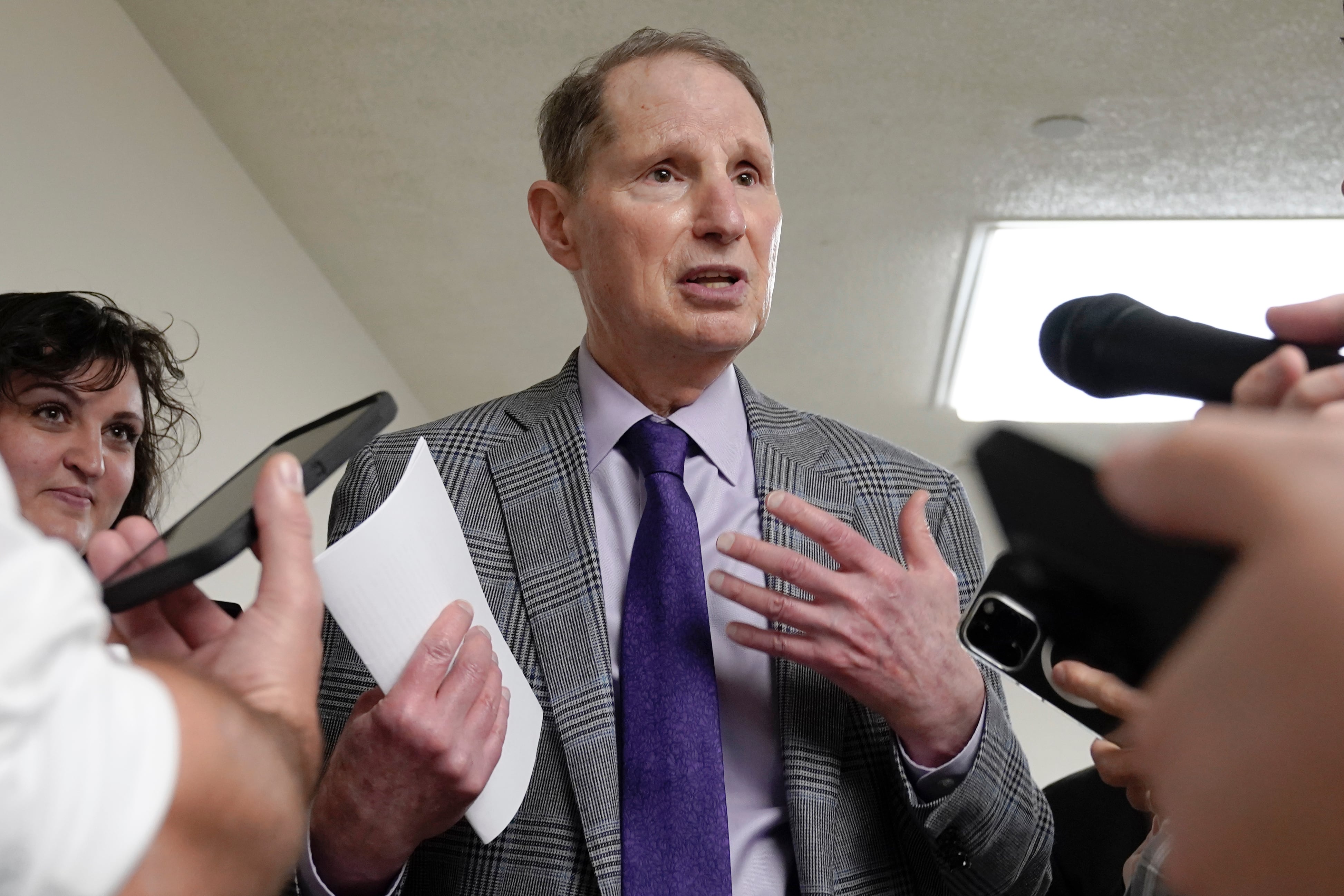In the race to stay ahead in artificial intelligence, the biggest technology companies are swallowing up the talent and products of innovative AI startups without formally acquiring them.
San Francisco-based Adept announced a deal late last month that will send its CEO and key employees to Amazon and give the e-commerce giant a license to Adept’s AI systems and datasets.
Some call it a “reverse acqui-hire.” Others call it poaching. Whatever it's called, it's alarming to some in Washington who see it as an attempt to bypass U.S. laws that protect against monopolies.
“I’m very concerned about the massive consolidation that’s going on in AI,” U.S. Sen. Ron Wyden, an Oregon Democrat, told The Associated Press. “The technical lingo is ‘up and down the stack’. But, in plain English, a few companies control a major portion of the market, and just concentrate — rather than on innovation — trying to buy out everybody else’s talent.”
So-called “acqui-hires,” in which one company acquires another to absorb talent, have been common in the tech industry for decades, said Michael A. Cusumano, a business professor at the Massachusetts Institute of Technology. But what’s happening in the AI industry is a little different.
“To acquire only some employees or the majority, but not all, license technology, leave the company functioning but not really competing, that’s a new twist,” Cusumano said.
A similar maneuver happened at the AI company Inflection in March when Microsoft hired its co-founder and CEO Mustafa Suleyman to head up Microsoft's consumer AI business, along with Inflection's chief scientist and several of its top engineers and researchers. That arrangement has already attracted some scrutiny from regulators, particularly in Europe.
Wyden also wants U.S. regulators to investigate the Amazon-Adept deal. He sent a letter Friday urging antitrust enforcers at the Justice Department and the Federal Trade Commission that “sustained, pointed action is necessary to fight undue consolidation across the industry.”
“What is going on here is instead of buying startups outright, big tech companies are trying a new play," Wyden said in an interview before sending the letter. ”They don’t want to formally acquire the companies, avoiding the antitrust scrutiny. I think that’s going to be the playbook until the FTC really starts digging into these deals."
President Joe Biden's administration and lawmakers from both parties have championed stronger oversight of the tech industry in recent years, likely scaring off big acquisitions that might have sailed through in earlier eras. U.S. antitrust enforcers, for example, plan on investigating the roles Microsoft, Nvidia and OpenAI have played in the artificial intelligence boom, with the Department of Justice looking into chipmaker Nvidia and the Federal Trade Commission scrutinizing business partners Microsoft and OpenAI.
Tech giants, including Microsoft, Amazon and Google, are trying to be conservative and not make too many acquisitions in the AI space, Cusumano said.
“It seems clever. I would think, though, that they’re not fooling anybody,” he said.
For smaller AI startups, the problem is also that building AI systems is expensive, requiring costly computer chips, power-hungry data centers, huge troves of data to train upon and highly skilled computer scientists.
Adept, which aims to make AI software agents that help people with workplace tasks, said it was trying to do two things at once — build the foundational AI technology as well as the products for end users. But continuing on that path “would’ve required spending significant attention on fundraising for our foundation models, rather than bringing to life our agent vision,” it said in a statement explaining the Amazon deal.
“They may have made a decision that they have no real future and just don’t have deep enough pockets to compete in this space, so they probably prefer to be acquired outright," Cusumano said. "But if Amazon is not willing or not able to do that, then this is kind of a second-best approach for them.”
Wyden has long taken an interest in technology, helping to write the 1996 law that helped set the ground rules for free speech on the internet. He said he generally favors a straightforward approach that encourages innovation, with guardrails as needed.
But in the AI industry, he said, “companies like Microsoft, Amazon and Google, either own major parts of the AI ecosystem or they have a leg up thanks to their massive resources.”
John F. Coyle, a law professor at the University of North Carolina, said he believes that Amazon hiring Adept employees without buying the company is clearly a move to avoid antitrust problems. But that type of hiring isn’t a “reverse acqui-hire,” he said.
Acqui-hires are typically face-saving moves that can be spun into success stories, Coyle said, and provide an alternative to liquidating a business. A smaller company can say it was sold to Amazon or Facebook and spin it as a positive, for example, even if wasn’t the founders’ original plan.
“This isn’t an acqui-hire. This is a straight up poach,” Coyle said of Amazon and Adept.
This doesn’t just happen in the tech world, he said, calling the move “a version of a very old story.” In his class, Coyle said, he teaches students about a case from the 1950s involving an advertising agency in New York City. Some employees left to start a new business and poached roughly 100 others to come to work for them.
“There are innumerable instances where one company went and raided another to take all their employees,” Coyle said. “That existed before the acqui-hire, that is going to happen after the acqui-hire.”













